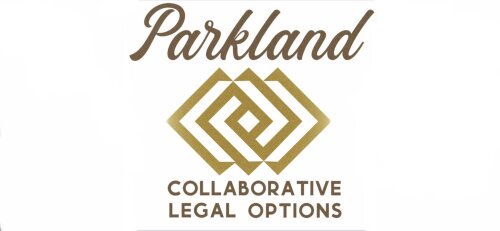Best Communications & Media Law Lawyers in Dauphin
Share your needs with us, get contacted by law firms.
Free. Takes 2 min.
List of the best lawyers in Dauphin, Canada
About Communications & Media Law in Dauphin, Canada
Communications & Media Law in Dauphin, Canada, encompasses a wide range of legal issues related to the regulation and governance of media operations and telecommunications. This includes broadcasting, advertising, privacy, digital media, and intellectual property law as it pertains to media content. Given the rapid technological advancements and the widespread use of digital platforms, this area of law is constantly evolving to address new challenges and opportunities faced by media professionals, companies, and consumers.
Why You May Need a Lawyer
Individuals and businesses may require legal assistance in Communications & Media Law for a variety of reasons:
- Regulatory Compliance: Ensuring that media operations adhere to the Canadian Radio-television and Telecommunications Commission (CRTC) regulations and other relevant laws.
- Intellectual Property: Protecting and enforcing copyrights, trademarks, and other intellectual property rights.
- Defamation and Libel: Addressing issues related to harmful statements made in media that could damage reputations.
- Advertising Standards: Navigating laws regarding truthful advertising, endorsements, and sponsorships.
- Privacy Concerns: Handling issues related to data protection and privacy laws affecting consumers and businesses.
- Contractual Disputes: Resolving conflicts arising from media contracts, licensing agreements, or distribution deals.
Local Laws Overview
In Dauphin, Canada, Communications & Media Law is primarily governed by federal legislation. Key aspects include:
- Broadcasting Act: Governs the operation of broadcasting services, ensuring they serve the cultural, linguistic, and social needs of Canadians.
- Telecommunications Act: Oversees telecommunications networks, promoting access to reliable and affordable services.
- Personal Information Protection and Electronic Documents Act (PIPEDA): Protects personal information collected by private-sector organizations.
- Copyright Act: Defines the rights of creators over their original works and governs the use and distribution of such content.
Frequently Asked Questions
What types of media are regulated under Canadian law?
Canadian law regulates various forms of media, including television, radio, print, and digital media, to ensure compliance with ethical standards and regulations.
How can I protect my digital content from being used without permission?
Digital content can be protected through copyright registration, usage of digital rights management tools, and legal agreements that specify terms of use.
What should I do if I receive a cease and desist letter related to media content?
Consult a Communications & Media Law lawyer to assess the legitimacy of the claim, respond appropriately, and negotiate if necessary.
How can I ensure my advertising campaigns are compliant with Canadian laws?
Work with legal counsel to review advertising materials for compliance with the Advertising Standards Canada guidelines and relevant laws.
What actions are considered as defamation in Canadian media law?
Defamation occurs when false statements are made that harm an individual's reputation. Legal action can be taken if these statements are published or broadcast.
Can I use music in my video content for public distribution?
Permission must generally be obtained through licensing agreements to use music in public video content.
How can I handle a breach of contract related to media licensing?
Attempt resolution through negotiation first. If unresolved, legal action may be necessary to enforce the contract terms or seek damages.
What is the CRTC and what role does it play?
The CRTC is a regulatory agency that oversees broadcasting and telecommunications in Canada, ensuring compliance with laws and promoting Canadian content.
Are there specific laws for protecting children's privacy in media content?
Yes, Canadian laws, including PIPEDA, have provisions to protect personal information of children, emphasizing parental consent and safeguarding practices.
What are my options if I believe my privacy has been violated by a media company?
You can file a complaint with the Office of the Privacy Commissioner of Canada or seek legal recourse through civil courts.
Additional Resources
For more information and support, consider reaching out to the following resources:
- Canadian Radio-television and Telecommunications Commission (CRTC)
- Office of the Privacy Commissioner of Canada
- Advertising Standards Canada
- Writers Guild of Canada
- Canadian Media Producers Association (CMPA)
Next Steps
If you require legal assistance in Communications & Media Law, consider taking the following steps:
- Identify specific legal needs and objectives related to your media issue.
- Research and reach out to lawyers with expertise in Communications & Media Law in Dauphin, Canada.
- Schedule consultations to discuss your situation and legal options available.
- Gather relevant documentation and information to support your legal case.
Taking informed and timely legal advice can help in effectively navigating the complexities of Communications & Media Law.
Lawzana helps you find the best lawyers and law firms in Dauphin through a curated and pre-screened list of qualified legal professionals. Our platform offers rankings and detailed profiles of attorneys and law firms, allowing you to compare based on practice areas, including Communications & Media Law, experience, and client feedback.
Each profile includes a description of the firm's areas of practice, client reviews, team members and partners, year of establishment, spoken languages, office locations, contact information, social media presence, and any published articles or resources. Most firms on our platform speak English and are experienced in both local and international legal matters.
Get a quote from top-rated law firms in Dauphin, Canada — quickly, securely, and without unnecessary hassle.
Disclaimer:
The information provided on this page is for general informational purposes only and does not constitute legal advice. While we strive to ensure the accuracy and relevance of the content, legal information may change over time, and interpretations of the law can vary. You should always consult with a qualified legal professional for advice specific to your situation.
We disclaim all liability for actions taken or not taken based on the content of this page. If you believe any information is incorrect or outdated, please contact us, and we will review and update it where appropriate.








